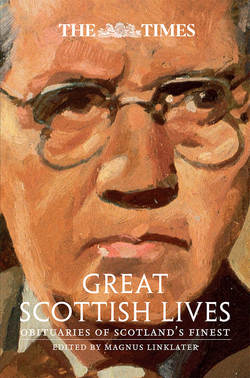Читать книгу The Times Great Scottish Lives: Obituaries of Scotland’s Finest - Magnus Linklater, Magnus Linklater - Страница 25
ОглавлениеRichard Burdon,
Lord Haldane
Lawyer, philosopher, and one of the greatest of all war ministers
20 August 1928
Lord Haldane, whose death we announce this morning, possessed one of the most powerful, subtle, and encyclopædic intellects ever devoted to the public service of this country. He was a lawyer whose profound learning broadened instead of narrowing his sympathies, a philosopher of distinction, an apostle of education, and an admin-istrator of equal courage and efficiency. The work for which, as Secretary of State for War, he was chiefly responsible is among the most important in the annals of the War Office, and his service on the Woolsack, which he occupied for two periods, gives him high rank among the long and distinguished roll of the Lord Chancellors of England.
Because his visit to Germany in 1912 did not lead him to anticipate the War of 1914, he was at the outbreak of hostilities, at the very moment when his work of Army organisation was bearing its most brilliant fruit, violently attacked, and his own sayings were distorted to give colour to the accusations. Extravagantly unjust though this campaign against him was, it did not fail of effect, and he became extremely unpopular. Some of those colleagues who shared with him responsibility for the advice offered to the nation and the conduct of its affairs between 1912 and 1914 failed to give him, when he most needed it, the support which he had every right to expect of them, and when the First Coalition was formed, with Mr. Asquith as Prime Minister, in 1915, Lord Haldane was not included in the Government. He did not return to power for eight years, emerging at last as the first Labour Lord Chancellor. His adherence was, at the outset, of considerable value to a party without administrative experience and his advice was continually sought, but his new associates were not bound to him by such strong ties of temperament, manner, or opinion as make for enduring confidence.
That he was, at more than one stage of his career, unfortunate in his friends, few will deny; that he was subjected, during the early stages of the War, to ignorant or malicious abuse, is clear to all who are able to distinguish between disloyalty and misjudgment. But he suffered more than most men would have suffered in the same circumstances, for he had a manner in his own defence which was the worst of weapons against the calumnies of the market-place, and did little to conciliate his more reasoning critics. This appearance of aloof tactlessness was due, in part, to his voice, which was not well suited to eloquence, but even more to something within himself which, while it raised him in intellect far above most of his contemporaries, made him almost a stranger to the workings of the general mind of England. He was a subtle thinker who found it hard to understand − and unfortunately allowed his audience to become aware of his difficulty in understanding − why others did not think as subtly as he.
By nature a metaphysician and by profession a lawyer, he had an exact and an exacting mind, and, though he was in private a kindly and generous man who was neither unduly puffed up by success nor soured by misfortune, he was, in public, singularly without those qualities, good and bad − qualities of ease and warmth and humour on the one hand, of flattery and smooth persuasion on the other − which endear a politician to the masses and, perhaps, to more exalted audiences as well. He had, in short, a seeming tendency, when engaged in controversy, to treat the world as a class-room which made it at once intolerant of his mistakes and less grateful than it might otherwise have been for his high administrative and intellectual services.
Richard Burdon Haldane was born on July 30, 1856, of Scottish and Northumbrian stock. His father, Robert Haldane, belonged to an old Scottish family, and was a Writer to the Signet in Edinburgh. His mother, who died on May 21, 1925, in her 101st year, was a daughter of Richard Burdon-Sanderson, a country gentleman with property in Northumberland, and a great-niece of Lords Stowell and Eldon. Haldane was educated at Edinburgh and Gottingen Universities, obtaining first-class honours in philosophy at Edinburgh, and the Gray and Ferguson scholarships open to the four Scottish Universities.
